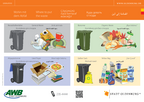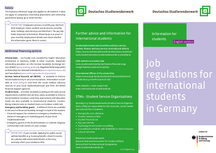Our University Sports Centre is offering a programme full of courses and other activities that you can get involved in to keep fit and healthy: aerobics, yoga, football, dance, capoeira, belly dance, table tennis, and gymnastics to name just a few of the approximately 100 courses, some of which are free of charge. Registration is required for some courses. You can do this either online or in person at the University Sports Centre.
University sports centre
Further sports facilities in Oldenburg
In addition to the sports facilities on both campuses there are numerous fitness centres, dancing schools, and sports clubs in Oldenburg that offer team sports, courses and activities.
The OLantis Huntebad is a great place for swimming, sauna, wellness, and aqua fitness. It has an indoor and outdoor area with an open-air swimming pool that is open in the summer.
The Dobbenwiesen, located between the city centre and the University, is a great spot for playing football and cricket.



